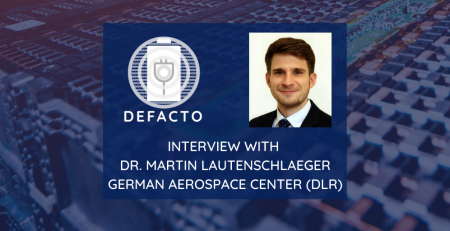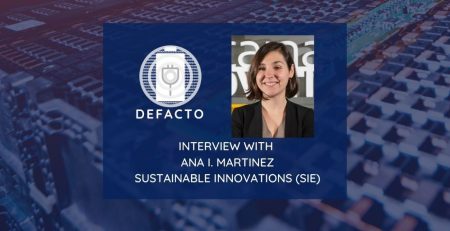DEFACTO will (…) will allow the battery market in Europe to grow and strengthen – Interview with Leclanché SA
The R&D department of Leclanché SA speaks on this interview about their main role in the DEFACTO Project, the challenges they expect to face and the main advancement that the project will bring.
Q: What is the role of Leclanché in the project?
A: Leclanché is leading the work package related Cell prototyping, validation, and improvement. The main objectives of this task are to provide essential parameters for the simulation and optimization tools that will be developed by other consortium members and to experimentally validate with trials in the production line as well as in pilot lines the results obtained from the simulations.
Q: What are the main challenges of this project?
A: DEFACTO intends to describe lithium-ion battery physics at different levels and integrate them into one tool that can predict the behaviour of the final product. The biggest challenge of this project is to describe the up-scaling process and the influences of the different production and material parameters on cell performance by means of computational tools.
Q: Why has Leclanché been selected to be part of the project?
A: Leclanché was chosen for DEFACTO due to its wide expertise and long experience as a leading provider of energy storage solutions and the only producer of water-based binder electrodes for Li-ion batteries in the world.
Q, What do you expect the project will bring?
A: Mainly this collaboration between different European technology leaders in the area of battery development will not only generate significant information and computational tools for the acceleration of the cell development process, but also it shall foster an environment that will allow the battery market in Europe to grow and strengthen. On a business level, the progress made by DEFACTO will be reflected in the decrease of up to 50% of the time and up to 70% of the costs related to battery cell development and process optimization. By involving computational simulation and modelling, the interactions between e.g., the materials and the production process or the different parameters involved in a single production step can be thoroughly evaluated without having to resort to trials in the production line (fewer experiments and resources). In terms of research and innovation, the achievements of DEFACTO shall also lead to a 20% decrease in the time needed to take a new concept and make it market-ready.












Leave a Reply